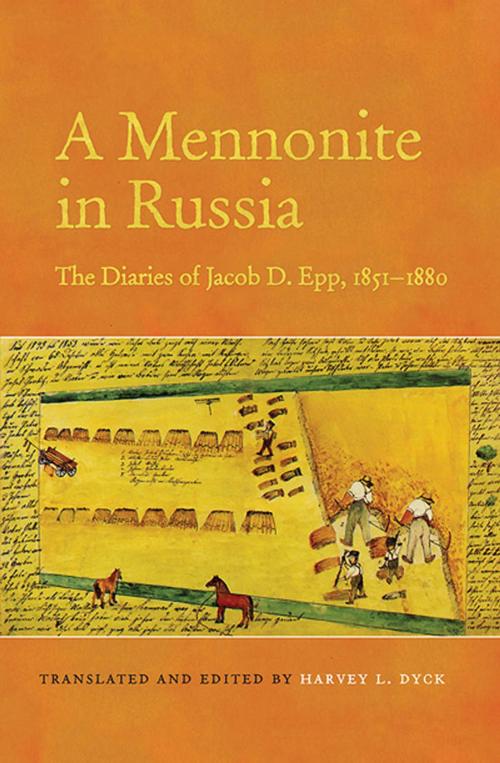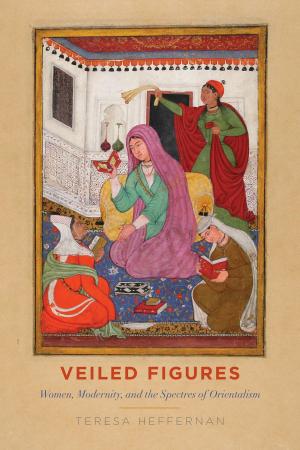A Mennonite in Russia
The Diaries of Jacob D. Epp, 1851-1880
Nonfiction, Religion & Spirituality, Christianity, Denominations, Mennonite, History, Asian, Russia, Biography & Memoir| Author: | Harvey L. Dyck | ISBN: | 9781442667730 |
| Publisher: | University of Toronto Press, Scholarly Publishing Division | Publication: | June 17, 2013 |
| Imprint: | Language: | English |
| Author: | Harvey L. Dyck |
| ISBN: | 9781442667730 |
| Publisher: | University of Toronto Press, Scholarly Publishing Division |
| Publication: | June 17, 2013 |
| Imprint: | |
| Language: | English |
In the lives of ordinary people are the truths of history. Such truths abound in the diaries of Jacob Epp, a Russian Mennonite school-teacher, lay minister, farmer, and village secretary in southern Ukraine. This abridged translation of his diaries offers a remarkably vivid picture of Mennonite community life in Imperial Russia during a period of troubled change. Epp’s writings reveal a skilled and honest diarist of deep feelings, and tell a human story that no conventional historical account could hope to equal.
The diaries overflow with the details of his workaday world. Family, village, church, and community routines are broken by trips to market, visits to other Mennonite settlements, and a memorable steamer voyage to boomtown Odessa on the Black Sea. He chronicles his long-time involvement in an unusual Imperial experiment in which Mennonites were “model farmers” in Jewish villages.
Harvey L. Dyck places the diaries in their historical, ethnocultural, social, religious, economic, and political settings. Based on archival research, interviews, travels, and consultations with other scholars, his detailed and perceptive introduction and analysis trace Jacob Epp’s life and present a sketch and interpretation of his larger family, community, and Imperial world.
With striking clarity the diaries and introduction together re-create a time and way of life marked by controversy and flux. They reflect significant facets of the experience of ethno-religious minorities in Imperial Russia and of the development of the southern Ukrainian frontier. Above all, they fill significant missing pages of the great community-centred story of Russian Mennonite life.
This book is richly illustrated with maps, black-and-white photographs, and watercolour paintings by Cornelius Hildebrand, Jacob Epp’s former village school pupil and later brother-in-law.
In the lives of ordinary people are the truths of history. Such truths abound in the diaries of Jacob Epp, a Russian Mennonite school-teacher, lay minister, farmer, and village secretary in southern Ukraine. This abridged translation of his diaries offers a remarkably vivid picture of Mennonite community life in Imperial Russia during a period of troubled change. Epp’s writings reveal a skilled and honest diarist of deep feelings, and tell a human story that no conventional historical account could hope to equal.
The diaries overflow with the details of his workaday world. Family, village, church, and community routines are broken by trips to market, visits to other Mennonite settlements, and a memorable steamer voyage to boomtown Odessa on the Black Sea. He chronicles his long-time involvement in an unusual Imperial experiment in which Mennonites were “model farmers” in Jewish villages.
Harvey L. Dyck places the diaries in their historical, ethnocultural, social, religious, economic, and political settings. Based on archival research, interviews, travels, and consultations with other scholars, his detailed and perceptive introduction and analysis trace Jacob Epp’s life and present a sketch and interpretation of his larger family, community, and Imperial world.
With striking clarity the diaries and introduction together re-create a time and way of life marked by controversy and flux. They reflect significant facets of the experience of ethno-religious minorities in Imperial Russia and of the development of the southern Ukrainian frontier. Above all, they fill significant missing pages of the great community-centred story of Russian Mennonite life.
This book is richly illustrated with maps, black-and-white photographs, and watercolour paintings by Cornelius Hildebrand, Jacob Epp’s former village school pupil and later brother-in-law.















